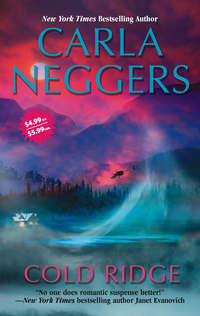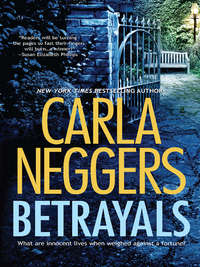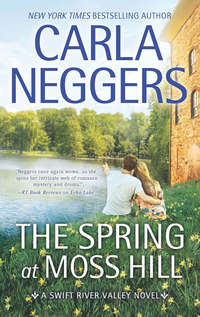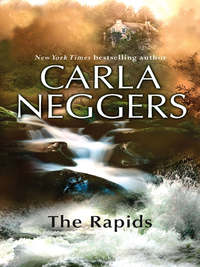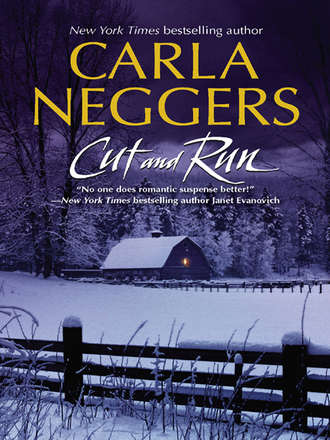
Полная версия
Cut And Run
“Look, Shuji,” Juliana interrupted, a perilous act in and of itself, trying not to show she was in a tearing hurry, “whatever it is, I’ll listen for it, all right? But right now I’m tired.”
If possible, his frown deepened. “You don’t want to discuss this?”
“No.”
“All right.” He spoke tightly, gazing at her through narrowed eyes, and she knew it decidedly was not all right. “Are you still planning to go to Vermont?”
“For a few days, yes. I need some time out.”
“I thought we’d agreed you wouldn’t go.”
Oh, shit, she thought, will you just leave?
Shuji walked around, pacing angrily, and picked up her sequined turban, which she’d forgotten completely. “What the hell’s this?”
“A turban.”
“What for?”
“I don’t know. It’s not mine. Someone must have left it here.” She huffed in frustration. “Damn it, Shuji, a few days in Vermont isn’t a vacation. The way I’ve been going, it’s hardly even a break. Don’t ruin it for me, okay? Look, I don’t want to argue with you, and anyway now’s not a good time to talk. I’m in a hurry. I forgot you were coming, and I made plans.”
There, she’d said it. Shuji spun around toward her, his narrowed eyes flashing angrily. “You forgot I was coming?”
She almost smiled—she’d known that would get him off the track. “I’ve been rattled lately—which is one reason I could use a break.”
“I take time from my own busy schedule to attend this concert, and you forgot I was coming? You ungrateful little witch!” He slammed the palms of his hands together with a restrained fury she found reassuring. Eric Shuji Shizumi was always easier to deal with when he was roaringly pissed. “How the hell have I put up with you all these years!”
“Just be glad you never married me,” Juliana said lightly, attempting to diffuse his anger.
Shuji just glared at her.
A gentle rap on the door interrupted them, and Shuji hissed impatiently but quickly recovered his poise as a tall, boyishly handsome man poked his head in and said, “Excuse me—”
Juliana held back a groan. “Yes, what is it?”
“Be nice,” Shuji warned under his breath. “Wouldn’t want your public to think you’re a snot.”
She resisted making a face at him. He gave her a wry, nasty grin and, without another word, stormed out. Damn him, Juliana thought, damn him, damn him, why couldn’t he just leave her alone?
“I’m sorry to disturb you, Miss Fall,” the man in the doorway said. He gave her a dashing smile that was unexpectedly sincere. “I’m Samuel Ryder.”
He paused, obviously expecting that she would recognize his name. She didn’t. She did, however, notice his eyes, a dreamy baby blue, a child’s eyes in a man’s face. They were oddly appealing—and somehow disturbing, perhaps because the rest of him seemed so polished and sophisticated. She said automatically, “Pleased to meet you.”
“I wanted to congratulate you on your performance this evening.” He came into the dressing room, at once bold and tentative. “This was my first opportunity to hear you, and I assure you, it won’t be my last. You were mesmerizing.”
She hadn’t heard that line in a while but silently chastised herself for being so cynical. Maybe he meant it. “Thank you,” she said politely. “It’s very nice of you to take the time to tell me so personally.” Now will you leave so I can become someone else?
He didn’t seem to know what to say next. On purpose, she’d left him no natural opening. He caught himself twisting his fingers together and suddenly shoved them into the pockets of his elegant evening overcoat. It was unbuttoned and underneath was a stylish black tuxedo over an obviously trim body. Juliana could almost hear her friends telling her not to be so damn critical—a rich, handsome, interested man was a rich, handsome, interested man.
She felt a touch of sympathy for him. He looked so lost, so lonely. Had she had that effect on him, her music? The Beethoven was a powerful piece. Yet she knew if Samuel Ryder was attracted to her, even just for tonight, it had little to do with her performance or who she really was. Experience had taught her that. Like others before him, Samuel Ryder was taken with his own fantasies about who she was and what she could mean to him. He was captivated by his own image of her. He knew nothing substantive about her temperament, her family, her intense, volatile, nonromantic relationship with Shuji. He knew nothing about J.J. Pepper.
She suspected Samuel Ryder wouldn’t approve of J.J.
But there was something so sweet and melancholy about the way he looked at her that she couldn’t be angry with him for his assumptions, nor could she denigrate how he felt. He was good-looking enough that she wondered if she was being too nasty in wanting to get rid of him. Even Shuji, who rarely noticed such things, had once commented that she was entirely too picky about men. Maybe he had a point. But Len’s baby grand at the Club Aquarian was waiting. Should she invite Ryder along? No, don’t be an ass! J.J. was her secret.
She smiled and watched his eyes melt. “It was nice meeting you, Mister Ryder, but if you’ll—”
Another man appeared in the doorway. He was dark-haired and dark-eyed, with a hard, scarred face that Juliana found both compelling and a little frightening. His clothes were expensive but casual—and sexy. The face, the attire, the tough, compact body all seemed to go with the deep sardonic voice. “Hey, Sam, thought that was you.” He walked in, uninvited, and nodded at Juliana. “Ms. Fall.”
I will never get out of here, she thought.
But Ryder’s reaction interested her. He had stiffened visibly and paled. “Stark—Matthew,” he said, managing a smile as he put out his hand. There was no friendship in the gesture. Whoever Matthew Stark was, Sam Ryder didn’t want any part of him. “It’s been a long time.”
“I guess it has,” Stark said, shaking hands briefly. “I caught the concert and spotted you. Thought I’d say hello.”
That’s bullshit, Juliana thought unexpectedly. Matthew Stark had anticipated the effect he would have on Sam Ryder. But that, she reminded herself, was hardly her problem. “If you gentlemen don’t mind—”
Matthew turned and grinned at her look of controlled frustration. “Come on, Sam, we’re in the lady’s way. I’ll buy you a drink.”
“I’m sorry—bad night.” Regaining his composure, Ryder turned to Juliana, his baby blue eyes shining with embarrassment and anger. “I apologize for the intrusion.”
Juliana bit back a laugh when she realized he meant Stark, not himself. “It’s all right,” she said, not caring whom he meant, just so long as they both got out of her way.
“Miss Fall, I was wondering—” Ryder stopped himself, red-faced, and glared at Stark, who just smiled back, staying put. Ryder turned back to Juliana, obviously controlling his anger. “It’s been a pleasure.”
He brushed past Stark, who was leaning against the open door, looking relaxed and distant. Juliana felt bad for Ryder and realized Stark’s presence had prevented him from asking her to dinner, which, she supposed, was just as well. She hoped Stark would take the hint and move along, too. But he didn’t. To hell with him, she thought, whipping up the turban and tossing it back into her bag with her rose-colored shoes. He could stay if he wanted. She was leaving.
“Nice turban,” he said. “Didn’t peg you for the sequins type.”
She gave him an ice-cold look. “Excuse me, won’t you?”
Stark made no move to get out of her way. “Take it easy,” he said, his own equanimity in stark contrast to her almost compulsive energy. “I’m on my way, okay?”
She almost told him good, go. Instead she remembered her position and Shuji’s lectures on how to treat her public, although somehow she didn’t think this solid, hard man fit into that category. Had he pulled an Aunt Wilhelmina and snored through the Beethoven? Why was he here?
“I take it you don’t know much about Sam Ryder,” Stark said.
She picked up her black crepe and considered just starting to undress right in front of him, but her eyes fell on his, dark and remote, and she reconsidered. “No, we just met tonight. Now—”
“You called him Mister.”
“So?”
“He’s a senator. I guess you didn’t know that.”
“A senator—oh, shit.”
“A U.S. senator,” Stark said, adding, “That’s U.S. as in United States.”
She rolled her tongue inside her cheek. Stark’s eyes, she noticed, seemed black, but she couldn’t be sure. “I’m not amused.”
“I didn’t think you would be.”
“And who are you?”
“Ah ha. The name Matthew Stark doesn’t jingle any bells behind those cool green eyes. My how the mighty have fallen. You and my editor ought to get together.”
Should she have heard of him? Probably not, she decided. He was just trying to annoy her—and succeeding remarkably well. “Mr. Stark, I’m running late.”
“As I said, I’m on my way. Just one more thing.” He placed one hand high on the door-jamb and looked at her. She could feel the sweat on the stray wisps around her hairline, dripping slowly between her breasts, matting her dress to her. She was hot and madder than hell but trying not to let him know it—and, at the same time, she felt herself daring him. Egging him on. He grinned at her. “If I were you, toots, I’d tell this Shuji character to stick it and head for Vermont.” He straightened up. “Night.”
Her back stiffening, Juliana gave him a steely look. His eyes seemed to change from black to a dark, dark brown, warmth coming into them, excitement. Toots, she thought, almost dispassionately. She couldn’t remember ever being called toots.
Stark was already out the door. Juliana shook out her black dress, putting all her pent-up irritation into the effort. Toots, for God’s sake. As for Vermont and Shuji—
How had Stark known about Vermont?
She leaped out the door after him. “You bastard, you eavesdropped on me and Shuji!”
Matthew Stark turned around and grinned. “That’s right. Bumped into him on his way out. Told him I thought you deserved a break, too. Lucky I read my program notes or I wouldn’t have known who he was.”
“You’ve never heard of Shuji?”
“Not until tonight. Last music I listened to was by George Thorogood and the Destroyers.”
It was something to seize on, and Juliana laughed, returning to her dressing room and shutting the door.
Matthew got the hell out of there—fast, before he did something he’d really regret. Like tell Juliana Fall she had the sexiest damn laugh he’d heard in ages. The lady was an artsy-fartsy type and damned cool, but he’d seen the impatience all over her stiff, trim little body. What was she in such a big hurry over? A man? No, he doubted she’d get into such a state over something as simple as a lover, romance, anything like that. Most men would be happy to wait for her, and he suspected she knew it. Ryder sure as hell would. Hell, I might, too, Stark thought, remembering how sweat had made the thin silk of her dress cling to her breasts, outlining their shape. Forget love and romance. Maybe a night of romping, good sex would put her in a hurry.
Shame on you, Matt, the lady probably doesn’t do stuff like that.
Not, he thought, seeing those deep, dark gorgeous eyes of hers once more, that she wouldn’t be damn good at it.
He wondered what he was going to tell Feldie.
The hell with it, he thought, why start worrying about that kind of thing at this late date? He went for a beer and thought some more about Juliana Fall’s laugh.
Six
Hendrik de Geer was smoking a cigar in the back seat of Ryder’s chauffeured car, waiting on Broadway, when the tall senator slid in next to him breathing hard and obviously agitated. “Put that thing out,” he said sharply, snatching a silk handkerchief from his pocket. He didn’t bother to shake the folds from it before he wiped his brow. “I hate cigars.”
The Dutchman shrugged impassively and put out his cigar, which he would finish later, in privacy. Ryder balled up his handkerchief and shoved it into the pocket of his overcoat, and Hendrik wondered, with some amusement, just how badly the pretty pianist Juliana Fall had treated him. With the skill of the practiced politician, Ryder composed himself. “You were at the concert? Did you enjoy it?”
“Yes, and no, I did not. Did you?”
“Yes—yes, of course. It was a fine performance.” Only the distant, pained look in Ryder’s eyes betrayed his lingering passion for the blond pianist. “Juliana Fall’s a remarkable musician, don’t you agree?”
“Music doesn’t interest me.”
Ryder gave Hendrik a thin, patrician smile, but the Dutchman took no offense. He was what he was, and long ago he’d stopped trying to change. Ryder said mildly, “Let’s get to the point, shall we? I assume you saw who I was with tonight.”
“Rachel Stein,” Hendrik said without expression.
Ryder looked straight ahead in the dark, chilly car, as if avoiding the Dutchman’s eyes could dissociate him from what he was saying. “She wants your head.”
“She deserves it. However, I’m not a masochist.”
“Neither am I.”
“Of course not. Rachel Stein wants my head, and you’ll give it to her because otherwise she’ll talk—and someone may look deeper into the possible connections between us. I shouldn’t think that’s something you or Sergeant Bloch would want.”
“Very perceptive of you, de Geer,” Ryder said bitterly. “She can do me incredible damage, and with no justification, I might add.”
Hendrik smiled, truly amused. “Ahh, yes, you’re the innocent in all this.”
Ryder made no argument, didn’t even hear the light sarcasm in de Geer’s voice. God, how he hated this! He had planned for this moment for days, since Rachel Stein had first given him the details of de Geer’s betrayal of her family and the Peperkamps, and now that it was here, he could barely concentrate. He was still seeing Juliana Fall’s eyes, dark and beautiful against the pale hair. She must have thought him a fool. “You’re such a silly ass, Sam,” his wife had said when she’d left him. Other women didn’t agree—he didn’t agree—but the sting of her words had stayed with him. His wife had been one woman he could never impress. That’s the kind you always go for, isn’t it, pal? But no, Juliana Fall wouldn’t be like that. If only Stark—damn him! What was he doing there tonight?
“But you have terms,” the Dutchman said calmly.
With almost physical force, the senator shoved from his mind the image of smug, arrogant Matthew Stark. Steelman, the men had called him, always with respect. They could count on Stark. He was reliable. Straight up. Nerveless. Ryder had wanted a nickname like Steelman, not Golden Boy. But that was all in the past. Who was the U.S. senator, and who was the has-been writer? Their meeting backstage was an unfortunate coincidence, that was all. That was all he would permit it to be.
“Yes,” he said, finally, “I have terms. You can solve my problems at the same time you solve your own.”
Ryder turned, observing the Dutchman’s ill-fitting suit, his unstyled hair and blunt, callused hands. How had such a man come to have so much power over him? But no longer, Ryder thought. At last, no more. “I know about Amsterdam. Rachel Stein told me everything when she came to me after she saw us in the car together on the six o’clock news. That was a bad piece of luck, but I warned you about meeting me in person. But perhaps things will work out for the best, hm? After Rachel and I talked, I did some investigating on my own and found out even more. You’re here tonight, de Geer, because you know you caused the deaths of twelve people and Rachel Stein would like nothing better than to see you brought to justice for what you did. You’re here because you know I know. You could disappear. I’m no fool, I know you could. But you have a good thing going with Bloch, and you’re getting old. It wouldn’t be easy to start over again, especially when there’s no need. You have only to get me what I want, and I’ll forget everything I know about you.”
Hendrik had learned not to dismiss so easily this man with the innocent eyes. “We’ve discussed this before. I’m here, am I not? Tell me what it is you want.”
“The diamond.”
The Dutchman made no sound.
“You know what I’m talking about. I know you do. The Stein woman doesn’t believe it exists or she’d never have mentioned it when she came to me to complain about you. She has no idea of my interest in the stone—but I’m convinced it does exist. What’s more, you’re going to get it for me.”
“I know of many diamonds, Senator—”
“Don’t, de Geer. Don’t waste my time.”
Hendrik regarded the young senator without emotion. “I have to be sure. This diamond’s name?”
Ryder’s eyes went cold. “The Minstrel’s Rough.”
Otis Raymond shifted back and forth on his feet as he stood on the hand-braided rug next to the big oak rolltop desk. Behind him, a fire roared in the stone fireplace, but, as always, Raymond seemed cold. A fine specimen of the U.S. Army, Bloch thought. Shit. It never ceased to amaze him that SP-4 Raymond had survived Vietnam, and as a door gunner no less. Had to be dumb luck.
“Good evening, Raymond.”
“Sergeant.”
Bloch leaned back in the swivel chair. “I just got a call from Sam. He said Stark showed up at Lincoln Center tonight. You wouldn’t know anything about that, would you?”
“Matt Stark? No, Sergeant. I ain’t seen him in a couple years.”
“You didn’t stop in to see him while you were in Washington?”
“No, uh uh. I was there on your time. I just did what I was supposed to do.”
“Of course. Then why was Stark in New York?”
“I don’t know. Ask him.”
“I might, Raymond. I just might.”
Otis sniffled, unable to stand still. “Anything else?”
“No, you’re dismissed.”
A short while later, Bloch received another call. “It’s done,” his man in New York said.
“An accident?” Bloch asked.
“Of course.”
“Satisfactory.” He watched the bright flames, enjoying the smell of the burning birchwood. “Very satisfactory.”
Seven
Matthew arrived in the newsroom early Monday morning, too damn early, and drank two cups of coffee even before Feldie showed up. He wasn’t doing any work. He just sat at his desk, staring at the Plexiglas partition above it where he’d hung the poster of the movie that had been based on his book, LZ. They’d kept the title. The movie had won lots of awards—so had the book—and now was available on tape for VCR; the book was required reading in college courses on the Vietnam War. He used to have some of the reviews stuck up on the partition next to the poster, but he’d pulled them down about a year ago. No reason. Just tired of looking at them, he supposed. A few months ago, Time had done a piece on whatever happened to Matthew Stark, the helicopter pilot who’d been awarded a Distinguished Flying Cross and survived two tours in the central highlands, only to return to Vietnam one more time as a freelance journalist, publishing articles with The New Yorker, Atlantic Monthly, Harper’s. When he finally came home he wrote his book and joined the Washington Post. He was the tarnished hero, the Vietnam vet people could dare to like.
Then he got sick of it all or ran out of things to say—something. He’d quit caring about what had brought on the change of heart. He’d resigned from the Post, done nothing for a while, then, still with a reputation left, showed up at the Gazette to do a tabloid’s version of investigative reporting.
He sipped some coffee and admitted he felt better. Nothing like a newsroom to help him forget a long Sunday of nightmares that had haunted him, awake and asleep. He called them nightmares, although they weren’t. They were memories.
“Asshole!”
Alice Feldon stomped over to his desk, the front page of the New York Times crushed in one hand, her glasses down on the end of her big nose. “Goddamn you,” she said. “I stick my neck out for you, I call in a few chips to get you a ticket to a sold-out concert at Lincoln Center, I trust you, you son of a bitch, and how the hell do you repay me?”
“Relax, Feldie. It was a dead end, all right? No story.”
“Bullshit.” She flung the Times at him. “There, read. A woman slipped and fell outside Lincoln Center after the concert Saturday night. Died. Her body wasn’t discovered until yesterday afternoon.”
“Great story, Feldie. I’ll get right on it.”
“I don’t need your sarcasm. The woman’s name was Rachel Stein. Mean anything to you?”
“No.”
“She was with one Senator Samuel Ryder at the concert—your old pal.”
Matthew rubbed his forehead. “Jesus Christ.”
The story started on the lower half of the front page. Rachel Stein had been a prominent Hollywood agent; she had recently retired to Palm Beach. A quote from Ryder’s office said she had become a prominent supporter of the senator’s and he was deeply grieved by her death.
“This guy Weasel—he a friend of Ryder’s, too? Is that why you were at Lincoln Center, because Ryder was there? They say Stein’s death was accidental. You have any other ideas?”
Stark let Feldie rant. The world’s largest uncut diamond, Ryder’s troubles, Weasel’s dumb urge to help him. Now this.
“Look, Stark, goddamnit, I don’t feel sorry for you. You could quit this job and still make more money on royalties and interest than I do putting in a sixty-hour week. I could fire you, you’d make out fine, which is probably the biggest reason I don’t.” She pushed her glasses up on top of her head. “People used to say you gave a damn.”
No one talked to him like that except Alice Feldon. No one else dared. Matthew liked it that he didn’t scare her. “Maybe I never did.”
“I don’t believe that.” Her voice had softened, and she let out a heavy sigh. “Was this Otis Raymond character in Vietnam with you and Ryder?”
“Weaze is a burned-out Vietnam vet. Country’s bored with them, Feldie. About all I get from him is bullshit. If there’s a story in this, you’ll get it. I promise.”
“All right, Stark. You’re a journalist. Follow up.”
Muttering that she ought to give up on the lazy shit, Alice stalked back to her desk. Matthew drank some more coffee and read the piece on Rachel Stein’s death. She could easily have slipped. He remembered how tiny she was, how wrinkled and old-looking, even if the article said she was only sixty-five. She wasn’t used to snow and ice. So maybe she slipped and maybe she didn’t—did it make any difference? He went back to the beginning and reread the piece.
And there it was. Rachel Stein had emigrated from Amsterdam in 1945, having spent the last months of the war in a Nazi concentration camp. She was a Dutch Jew.
A Dutch Jew.
And the man Ryder was supposed to have met, Hendrik de Geer, was also Dutch.
Stark looked up at the LZ poster, not seeing it. Something else was stirring around in his head, but he couldn’t pin it down. He pulled out the program he’d saved from the concert, just in case Feldie wanted proof he’d attended, just in case he felt like cutting out the picture of Juliana Fall and sticking it on his partition.
Конец ознакомительного фрагмента.
Текст предоставлен ООО «ЛитРес».
Прочитайте эту книгу целиком, купив полную легальную версию на ЛитРес.
Безопасно оплатить книгу можно банковской картой Visa, MasterCard, Maestro, со счета мобильного телефона, с платежного терминала, в салоне МТС или Связной, через PayPal, WebMoney, Яндекс.Деньги, QIWI Кошелек, бонусными картами или другим удобным Вам способом.





